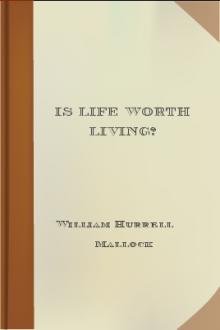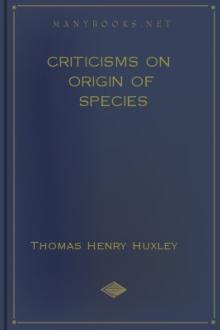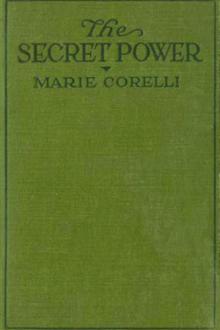Genre Religion. Page - 5
No registration or authorisation! And it is all for free!

of sense is but a small part of the pleasure he actually experiences.That pleasure, as a whole, is a highly complex thing, and rests mainlyon a basis that, by a little knowledge, could be annihilated in amoment. Tell the boy what the champagne really is, he has been praising;and the state of his mind and face will undergo a curioustransformation. Our sense of the worth of life is similar in itscomplexity to the boy's sense of the worth of his wine. Beliefs andassociations play exactly the same

g with these propositions the description of creation in that treatise, one may indeed see that what is called divine providence is government by the Lord's divine love and wisdom. In that treatise, however, creation was the subject, and not the preservation of the state of things after creation--yet this is the Lord's government. We now treat of this, therefore, and in the present chapter, of the preservation of the union of divine love and wisdom or of divine good and truth in what was

all the parts of thewatch to the function, or purpose, of showing the time, is held to beevidence that the watch was specially contrived to that end; on theground, that the only cause we know of, competent to produce such aneffect as a watch which shall keep time, is a contriving intelligenceadapting the means directly to that end.Suppose, however, that any one had been able to show that the watch hadnot been made directly by any person, but that it was the result ofthe modification of another

r with nine inconveniences and mischiefs that attend those churches where unity and peace is wanting.IV. And, lastly, I shall give you twelve directions and motives for the obtaining of it. 1. As touching the sense of the text, when ye are counselled to keep the unity of the Spirit, we are not to understand the Spirit of God, as personally so considered; because the Spirit of God, in that sense, is not capable of being divided, and so there would be no need for us to endeavour to keep the unity

g by With trampling feet of horse and men: Empire on empire like the tide Flooded the world and ebbed again;A thousand banners caught the sun, And cities smoked along the plain, And laden down with silk and gold And heaped up pillage groaned the wain. Kemp. * * * #The Priestly Lie# When the first savage saw his hut destroyed by a bolt of lightning, he fell down upon his face in terror. He had no conception of natural forces, of laws of electricity; he saw this event as the act of an individual

his need of head covering, and he seemed unconscious of, or else indifferent to, the hot glare of the summer sky which was hardly tempered by the long shadow of the floating cloud. At some moments he was absorbed in reading,--at others in writing. Close within his reach was a small note-book in which from time to time he jotted down certain numerals and made rapid calculations, frowning impatiently as though the very act of writing was too slow for the speed of his thought. There was a

hings holy that were therein contained, and especially, the priest and clerk most happy, and without doubt, greatly blessed, because they were the servants, as I then thought, of God, and were principal in the holy temple, to do His work therein.17. This conceit grew so strong in a little time upon my spirit, that had I but seen a priest (though never so sordid and debauched in his life), I should find my spirit fall under him, reverence him, and knit unto him; yea, I thought, for the love I

to-day, it leads an historical life, striding onward in thepath of progress without stay or interruption. Deprived of politicalindependence, it nevertheless continues to fill a place in the worldof thought as a distinctly marked spiritual individuality, as one ofthe most active and intelligent forces. How, then, are we todenominate this omnipresent people, which, from the first moment ofits historical existence up to our days, a period of thirty-fivehundred years, has been developing

ice not in whathe has been taught to believe; not in this Church's doctrine or in that;not in this issue, or in that issue; but "in the Truth." He will acceptonly what is real; he will strive to get at facts; he will search forTruth with a humble and unbiassed mind, and cherish whatever he finds atany sacrifice. The Greatest Thing in the World.March 1st. "Consider the lilies of the field how they grow." Christ madethe lilies and He made me--both on the same broad principle.

mits this question because he does not consider that it has any more bearing upon the essentials of religion, than have the theories we may hold about the relation of God and the moral law to the starry universe. The latter is a question for the theologian, the former for the psychologist. Whether we are mortal or immortaea of this book very roughly, these two antagonistic typical conceptions of God may be best contrasted by speaking of one of them as God-as-Nature or the Creator, and of the